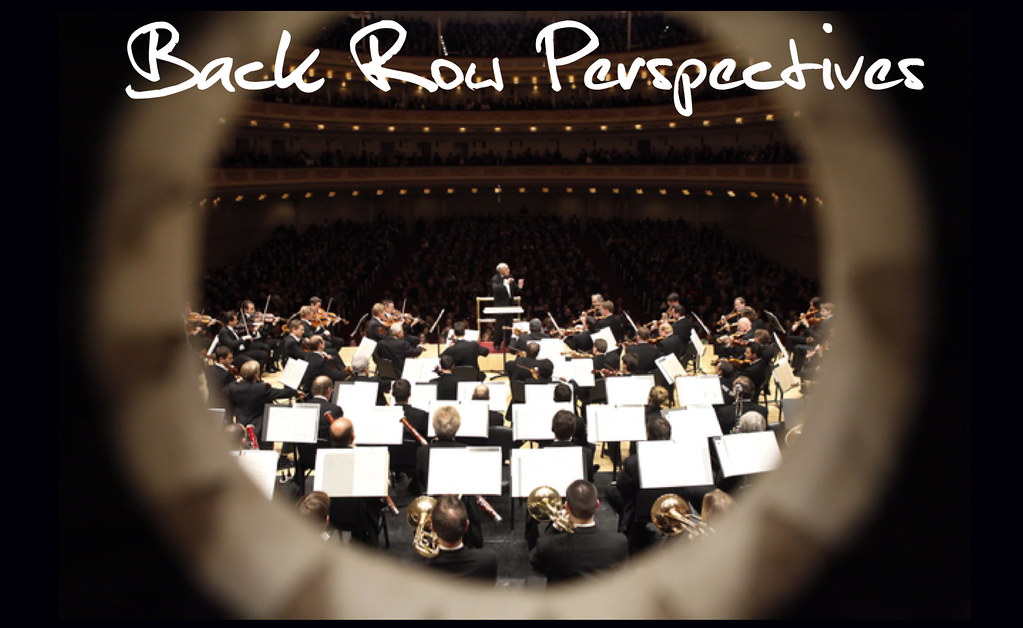Because of all the conductor shuffling I mentioned in an earlier post, there were also a lot of program changes. Four of the eight concerts were supposed to be Mahler 6 and Bruckner 6 with Salonen, but after he dropped out, Franz Welser-Möst took on 1 concert of Bruckner 9, and Georges Pretre took the remaining 3 concerts with a program of Beethoven and Schubert. The Pretre program doesn't have any trombones, which is nice because it means I have the weekend off to explore the Japanese countryside with Kristi.
The other 4 Tokyo concerts were done this past week by a young Latvian conductor named Andris Nelsons. He's a student of renowned conductor and fellow Latvian Mariss Jansons, and many of the colleagues can't believe how similar Nelsons and Jansons are in so many ways. I've not worked with Jansons much, but I must say the two speak very similarly, and I have noticed they both sweat more than any other conductors I've ever worked with. :)
The Nelsons program only had trombones in the second half, for Dvorak's "New World" symphony. We just finished a long run of this same symphony under Gustavo Dudamel a few weeks back, and it was the first time I've repeated a work with a different conductor in such a short period of time. It was very interesting to see the work develop a totally new personality under a different baton, even though many of the orchestra personnel were unchanged from the Dudamel block. There were certain things that stayed exactly the same, and I found myself wondering if those things were sort of "Philharmonic constants" that will never change for any conductor. It was mostly melody issues... timing and phrasing... that Nelsons seemingly could not budge. But almost everything else seemed surprisingly flexible, and slowly but surely the famous masterpiece became a new creature specially created for this visit to Tokyo. At first I was somewhat partial to the Dudamel version, but as the orchestra 'bought in' to Nelsons' ideas, some of the changes won me over. I am learning from this orchestra every day that the same music can take on many different but equally beautiful personalities at various times. For most music, there are multiple ways it can sound, each way with its own advantages and disadvantages. A person can certainly prefer one way to another, but I'm finding personally that with certain works (like Dvorak 9) the strictness of my musical preference often fades with time until I can equally enjoy vastly different interpretations. It's like seeing the same painting different ways depending on the lighting. Kinda neat, I think.
I debated for a long time whether or not I should mention this next item. It's a sad piece of news that involves another orchestra member, and I'm still not sure if it is ethical or professional to post something of this nature on a personal blog. However, two factors make me want to go ahead with it. First, the news has been reported by the AP in several mainstream news outlets, so it's no longer a secret. Second, this family needs lots of prayers right now, and I know that many BRP readers can aid in that area.
This past Wednesday, November 3rd, the orchestra had the day off. One of our double-bassists, an experienced mountaineer, was on his way down from the summit of Mt. Fuji along with one of the orchestra's support staff. The bassist had been up Fuji about 15 times before, but on Wednesday slipped and fell a great distance to his death. He was 41 years old and leaves behind a wife and several young daughters. The other climber went down to him and waited for several hours in below-freezing weather until the rescuers could extract them both. I don't want to mention the names, because I don't want my blog to get publicity of any kind from this tragedy, and I'm afraid other folks that might Google the names would get sent here.
This is obviously an enormous tragedy for all the colleagues, and the mood has been understandably quite somber since the accident. The orchestra decided to continue the tour as scheduled, but all non-essential events have been cancelled (i.e. post-concert receptions). The family needs lifting up in prayer at this moment, and probably for a long time to come. I can't imagine the grief they are feeling, and the whole thing has affected me quite strongly even though I didn't know the colleague that well. The morning after it happened, the orchestra met for our scheduled rehearsal and responded in the only way we know how... we played music. Georges Pretre had just arrived, and he led the group through the slow movement of Beethoven's 3rd symphony, fittingly a Trauermarsch, after which we stood for a minute of silence. The funeral is set for tomorrow (Sunday), and since I can't be there, I just wanted to lift up this man's family in my own little way. And I don't want to overlook the suffering of the orchestra's violin maker/repairman, who watched it all happen and undoubtedly needs our thoughts and prayers as well.

No comments:
Post a Comment